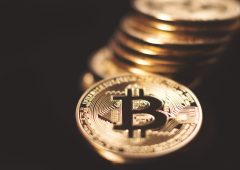Trump’s Company Refutes Claims of Binance Partnership
15.03.2025 16:00 1 min. read Alexander StefanovWLFI, a cryptocurrency project linked to the Trump family, has responded to recent allegations made by major news outlets, labeling them as politically charged and inaccurate.
The project released a statement challenging what it called “agenda-driven reporting” and denying any claims made by sources like The Wall Street Journal and Bloomberg.
The controversy stems from a report by Bloomberg, which suggested that WLFI, or World Liberty Financial, had entered discussions with Binance about launching a US dollar-backed stablecoin. However, details on the talks remain unclear, and it’s uncertain whether any formal agreements were made.
In its response, WLFI clarified its mission, asserting that the project is a decentralized finance (DeFi) initiative focused on transforming the global financial system. The statement emphasized WLFI’s commitment to democratizing finance, positioning itself as a forward-thinking player in the space.
Furthermore, WLFI defended its relationships within the blockchain ecosystem, stressing that it partners with top-tier organizations pushing the industry forward. It urged the public to ignore sensational headlines and instead look to the company for accurate and transparent updates.
Adding fuel to the speculation, a report claimed that Binance’s former CEO, Changpeng Zhao (CZ), met with Steve Witkoff, a prominent figure behind WLFI, at the Bitcoin MENA 2024 conference in Abu Dhabi, three months after his rehab stint. However, CZ has publicly denied these allegations.
-
1
Tether’s Hypothetical IPO Could Value It Above Coca-Cola, CEO Suggests
10.06.2025 11:00 1 min. read -
2
UK Regulators Unveil PISCES – A New Era for Private Share Trading
11.06.2025 15:00 2 min. read -
3
Trump Turns 79 With Billions in Crypto and a $45M Parade
14.06.2025 22:00 2 min. read -
4
Polygon Breaks from Decentralization as Sandeep Nailwal Assumes Full Control
11.06.2025 20:00 2 min. read -
5
KuCoin Plants Its Flag in Bangkok With a Licensed Thai Exchange
14.06.2025 13:00 1 min. read
SoFi Returns to Crypto with Trading, Staking, and Blockchain Transfers
Digital banking platform SoFi Technologies is making a strong return to the cryptocurrency space, relaunching its crypto trading and blockchain services after stepping away from the sector in late 2023.
Chinese Tech Firms Turn to Crypto for Treasury Diversification
Digital assets are gaining ground in corporate finance strategies, as more publicly traded companies embrace cryptocurrencies for treasury diversification.
Ripple Faces Legal Setback as Court Rejects Bid to Ease Penalties
Ripple has been dealt another legal blow after a federal judge rejected its attempt to ease court-imposed restrictions and penalties stemming from its long-standing battle with the U.S. Securities and Exchange Commission (SEC).
BIS Slams Stablecoins, Calls Them Ill-Suited for Modern Monetary Systems
Stablecoins are failing where it matters most, says the Bank for International Settlements (BIS), which sharply criticized the asset class in its latest annual report.
-
1
Tether’s Hypothetical IPO Could Value It Above Coca-Cola, CEO Suggests
10.06.2025 11:00 1 min. read -
2
UK Regulators Unveil PISCES – A New Era for Private Share Trading
11.06.2025 15:00 2 min. read -
3
Trump Turns 79 With Billions in Crypto and a $45M Parade
14.06.2025 22:00 2 min. read -
4
Polygon Breaks from Decentralization as Sandeep Nailwal Assumes Full Control
11.06.2025 20:00 2 min. read -
5
KuCoin Plants Its Flag in Bangkok With a Licensed Thai Exchange
14.06.2025 13:00 1 min. read


